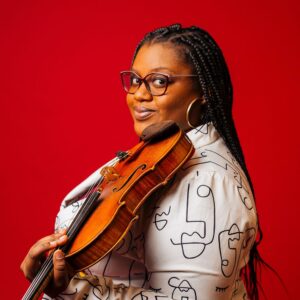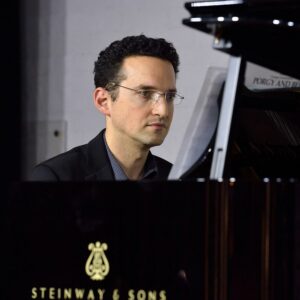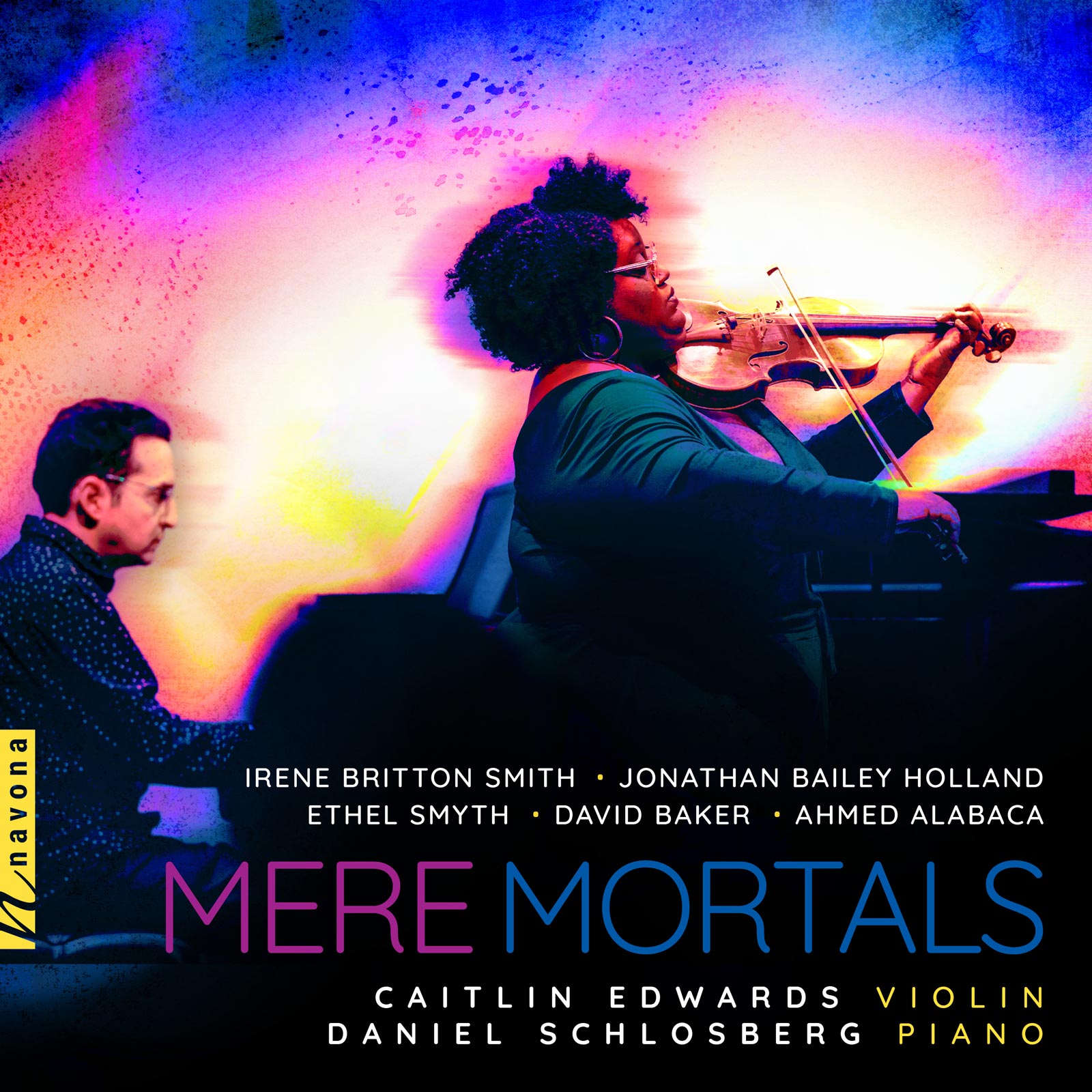Mere Mortals
Caitlin Edwards violin
Daniel Schlosberg piano
Irene Britton Smith composer
Jonathan Bailey Holland composer
Ethel Smyth composer
David Baker composer
Ahmed Alabaca composer
Caitlin Edwards and Daniel Schlosberg work in collaboration to bring us MERE MORTALS, an exceptional performance and intuitive study on works for violin and piano by composers of marginalized identities with a brilliant legacy to share with the world.
In a world that often grinds us to the bone, MERE MORTALS asks us to slow down, step back, and appreciate the fruits of our labor, reminding us that although our time on this earth is fleeting, it can also be a rich and exploratory experience that enables us to leave an immortal and vital legacy behind.
Listen
Stream/Buy
Choose your platform
Track Listing & Credits
| # | Title | Composer | Performer | |
|---|---|---|---|---|
| 01 | Sonata for Violin and Piano: I. Allegro cantabile – Allegro di molto | Irene Britton Smith | Caitlin Edwards, violin; Daniel Schlosberg, piano | 7:32 |
| 02 | Sonata for Violin and Piano: II. Andante con sentiment | Irene Britton Smith | Caitlin Edwards, violin; Daniel Schlosberg, piano | 5:00 |
| 03 | Sonata for Violin and Piano: III. Vivace | Irene Britton Smith | Caitlin Edwards, violin; Daniel Schlosberg, piano | 3:55 |
| 04 | Sonata Variation | Jonathan Bailey Holland | Caitlin Edwards, violin; Daniel Schlosberg, piano | 5:41 |
| 05 | Sonata for Violin and Piano: I. Allegro moderato | Ethel Smyth | Caitlin Edwards, violin; Daniel Schlosberg, piano | 10:52 |
| 06 | Sonata for Violin and Piano: II. Scherzo: Allegro grazioso | Ethel Smyth | Caitlin Edwards, violin; Daniel Schlosberg, piano | 3:13 |
| 07 | Sonata for Violin and Piano: III. Romanze: Andante grazioso | Ethel Smyth | Caitlin Edwards, violin; Daniel Schlosberg, piano | 8:46 |
| 08 | Sonata for Violin and Piano: IV. Finale: Allegro vivace | Ethel Smyth | Caitlin Edwards, violin; Daniel Schlosberg, piano | 7:18 |
| 09 | Sonata for Violin and Piano: I. Flowing with feeling | David Baker | Caitlin Edwards, violin; Daniel Schlosberg, piano | 5:01 |
| 10 | Sonata for Violin and Piano: II. Reverie | David Baker | Caitlin Edwards, violin; Daniel Schlosberg, piano | 6:03 |
| 11 | Sonata for Violin and Piano: III. With Fire | David Baker | Caitlin Edwards, violin; Daniel Schlosberg, piano | 5:37 |
| 12 | Mere Mortals | Ahmed Alabaca | Caitlin Edwards, violin; Daniel Schlosberg, piano | 4:03 |
This album is made possible in part by support from the Institute for Scholarship in the Liberal Arts and the Initiative on Race and Resilience, College of Arts and Letters, at the University of Notre Dame.
A special thank you to the DeBartolo Performing Arts Center, and to the following individuals:
Berthold Hoeckner, Sean Martin, Sarah Prince, and Norman Vesprini
Recorded July 11-13, 2022 at Leighton Concert Hall, DeBartolo Performing Arts Center, University of Notre Dame in Notre Dame IN
Recording Session Engineer Hunter Brown
Editing and Mixing Hunter Brown
Mastering Melanie Montgomery
Executive Producer Bob Lord
A&R Director Brandon MacNeil
VP of Production Jan Košulič
Audio Director Lucas Paquette
VP, Design & Marketing Brett Picknell
Art Director Ryan Harrison
Design Edward A. Fleming, Morgan Hauber
Publicity Chelsea Kornago
Artist Information

Caitlin Edwards
Caitlin Edwards is a violinist, arranger, recording artist, and teacher based in Chicago. She began her musical journey at the age of 8 within a non-profit organization in her hometown of Birmingham AL. She later attended the University of Louisville (B.M.) and DePaul University (M.M.). Edwards is a classically trained violinist, but she’s inspired by gospel, jazz, hip-hop, and neo-soul. She released her debut album, Exhale, in 2021. She composes original music and intentionally performs the works of Black composers to help ensure that these composers and their compositions are remembered and spotlighted for aspiring young BIPOC musicians and the world as a whole.

Daniel Schlosberg
Daniel Schlosberg leads a kaleidoscopic musical life. He has appeared with the Chicago Symphony Orchestra in numerous chamber music concerts and new music concerts, and was a featured soloist in subscription performances of Messiaen’s Trois Petites Liturgies. He has a passion for contemporary music, collaborating frequently with Eighth Blackbird and Third Coast Percussion.

Ahmed Alabaca
Ahmed Alabaca is an African American composer, conductor, songwriter, pianist, and community facilitator creating power and possibility, through music, for himself and the diverse communities he is a part of. Raised in San Bernardino CA, in a low-income community, Alabaca knows the value of hard work and perseverance in the face of systemic and interpersonal challenges. Alabaca’s vision is “a new renaissance” for underrepresented composers, which centers on the works of people of color and creates opportunities for them to perform, record, and archive their work.
Notes
As I scanned through composer biographies before writing this piece, I paused at Ahmed Alabaca’s fond portrait of their high school experience. They wrote, “high school was great. I played in concert band, marching, and jazz band. I played keyboards, violin, and percussion in all the musicals, ultimately playing piano my senior year…I literally was in everything musical on campus. I loved high school.” Alabaca not only appreciated having access to a wide range of musical experiences, but importantly highlighted the band teacher that encouraged exploration and experimentation on a variety of instruments. Having had a similar experience in high school, I sat with gratitude for my teachers who had made this kind of musical upbringing possible.
That gratitude illuminated an important thread connecting the composers and works featured on this album: MERE MORTALS is an album almost entirely of music educators. Each composer is in dialogue with their historical moment, musical peers, the listening public, and the future of music composition through their roles as students and mentors. The way Ahmed Alabaca describes their relationship to music education inspires a lens through which we can see and hear the other four composers gracefully interpreted by Caitlin Edwards and Daniel Schlosberg. As an introduction to the album, here are the ways education shaped the lives of these composers and the featured works.
— Reed A. Williams

